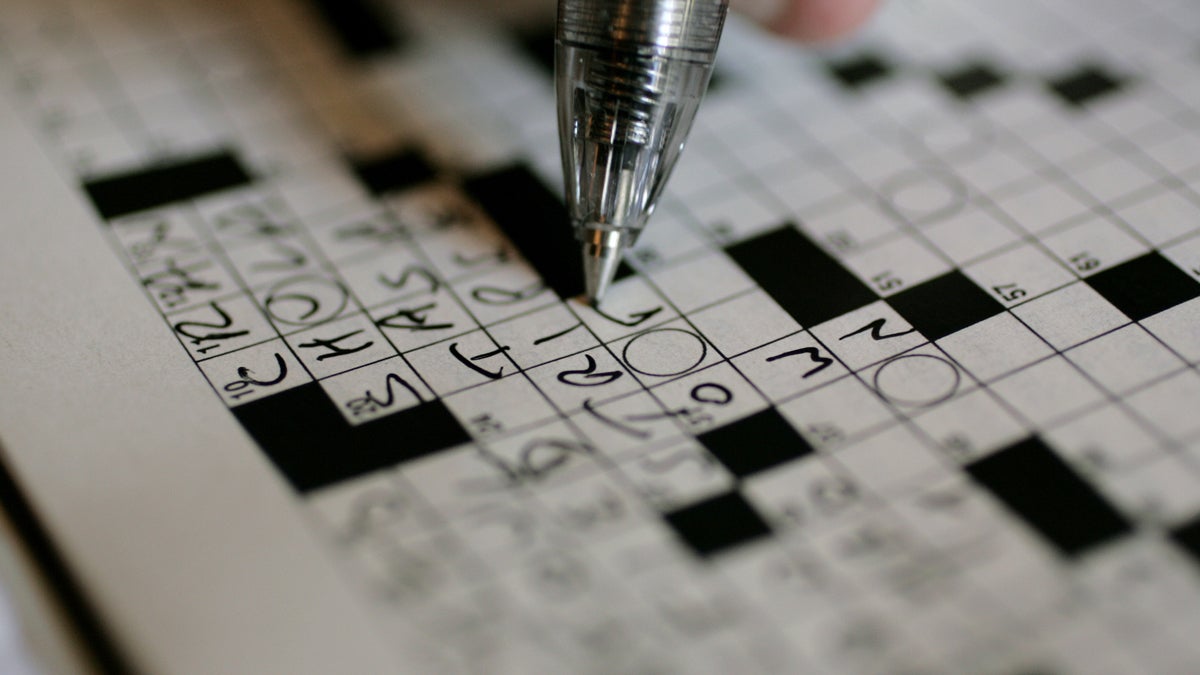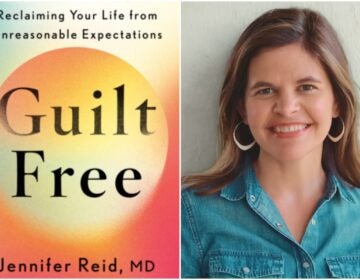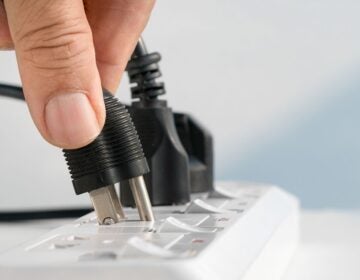When Quaker weds Episcopalian, compromise is for the rest of the family

A puzzle fan is shown working on the New York Times crossword puzzle. (AP Photo/Carolyn Kaster
My husband and I have a mixed marriage. He’s a Quaker; I’m an Episcopalian. Not as mixed as some, you might say. And it’s true that this difference posed no problems while we were dating, because back then Sundays were for reading the newspapers. But when we decided to get married, something ancient started to stir, and what once didn’t matter now did.
First, which denomination would dominate the wedding ceremony itself? The how-to manual for Quakers, “Faith and Practice,” spoke thus of weddings in the meetinghouse:
If the bride is not a member of the Religious Society of Friends, the Committee on Clearness at the groom’s meeting interviews the bride and checks her out with several people who know her. Then a report on her “clearness” is presented to the groom’s meeting for approval.
That wasn’t going to work for me.
In turn, my husband grew up in a world that eschewed pews, pulpits, and parsons. While he didn’t object to sitting down for three chats with a friendly Episcopal minister, he was not interested in a formal wedding in a neo-Gothic church that seated hundreds of people. He certainly wasn’t going to kneel.
We compromised. We would get married in the garden at the home of my husband’s grandmother, with only family at the ceremony, seated on folding chairs. The first 30 minutes would be Quaker meeting, followed by the Episcopal wedding service, with the local assistant rector officiating.
During the Quaker meeting portion, my husband’s family sparkled. Each stood to say something lovely and loving about marriage in general and our union in particular. My family sat still as stones. Then it was time for the 12-minute Episcopal wedding service. My husband and I rose, not a kneeler in sight in the garden. My family came to life. They knew all the responses, they voiced the “Amens” with gusto, and the Lord’s Prayer resounded among the rose bushes. Both families celebrated happily with champagne.
Then came children. What to do about baptisms? Quakers do not have “rites.” Episcopalians do. I persuaded my husband that it was better to be safe than sorry. The local Episcopal church was accommodating: At our son’s baptism the godparents were two Episcopalians, one Quaker, and one lapsed Catholic. At our daughter’s, one Episcopalian, one Quaker and one uncommitted. We had the bases covered.
At first, we took turns going to the local Quaker meeting and the local Episcopal church. But we missed the music on the Sundays when we were at meeting, and the kids liked the play area at church. We started to go to church only. Our son and daughter were both confirmed with a nice slap by an Episcopal bishop. We balanced that with choosing a Quaker school, where there was no slapping at all.
The kids wore their two religious hats with ease. Once, when still quite small, our daughter nicely demonstrated her grasp of the fundamentals of both denominations: the deep-seated Episcopalian belief in the correct silverware and the Quakerly use of archaic language. While sitting at the dinner table one night she refused to take a fork from her big brother.
With a shake of her head, she sighed, “No. Would you please pass me a spoon?” She paused, then: “Or, as we say in Quaker, please pass me thee spoon.”
Our son got quite adept at calling up one or the other of his backgrounds as a ready excuse: It was his Quaker side when it was handy to get out of doing something aggressive, and it was his Episcopal side when he wanted to have his own way without any consensus at all.
The kids are now all grown and out of the house, and what once stirred has gone back to sleep. My husband and I are again where we used to be on Sunday mornings, worshipping faithfully at the Church of the Sunday Crossword Puzzle.
We’ll see what happens when the kids meet their mates.
WHYY is your source for fact-based, in-depth journalism and information. As a nonprofit organization, we rely on financial support from readers like you. Please give today.





